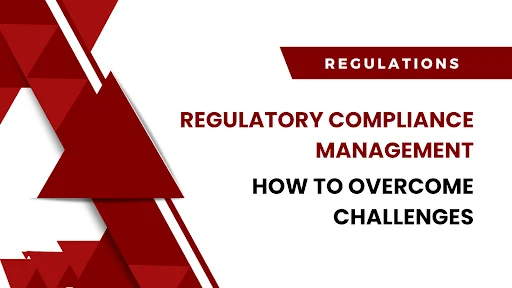The fintech industry is reshaping the future innovations and dynamics of global financial services. It is projected to reach a surprising amount of $305 billion in 2025. This amount highlights the rapid growth of the transformative implicit of the fintech industry.
This rocketing growth comes with the regulatory changes. In 2024, about 93% of fintech companies reported difficulty in meeting the compliance requirements.
60% of the fines are exceeding due to a decline in anti-money laundering and customer due diligence best practices.
(RegTech) Regulatory technology is a subset of fintech, and it is an alternative critical solution to these challenges. The growth rate of the regtech market is expected to grow to $25.19 billion by 2028.
It is the result of the growing complexities of compliance requirements. The need for advanced tools and technologies, like artificial intelligence and machine learning, is in demand for efficient work.
Despite the use of these advanced technologies, global fintech still saw a decline of 20% in investment in 2024. This figure reflects the impact of raising interest rates of geopolitical instability on this sector.
The continuous growth of fintech has transformed banking, payments, lending, and investment services.
The innovation in this sector needs deep oversight. Fintech regulations ensure the operations, security, transparency, and fairness in consumer protection and financial stability.
This blog will help you learn about fintech regulation, its types, future trends, and challenges faced by the fintech industry.
What is Fintech Regulation?
Fintech regulation refers to a set of legal codes, laws, frameworks, standards, and supervisory measures governing financial technology companies. This set of laws and rules oversees financial technology businesses.
These laws guarantee that fintech companies adhare to compliance, standards, alleviate risks, and protect consumers while encouraging innovations.
These regulations promise protection, financial stability, cybersecurity, and compliance with anti-money laundering (AML) and counter-terrorism financing (CTF) laws. Fintech companies operate in a complex global environment.
They must stick to the rules and regulations set by multiple regulatory bodies, directed by different laws. These regulations address various issues, including fraud prevention, data protection, anti-money laundering, and financial security.
These regulations ensure that all fintech industries operate and work ethically, reliably, and fairly.
Fintech industries operate at the intersection of finance and technology. Regulators must adapt and adhare to balance innovation with stability.
Government and financial authorities have introduced laws and fintech regulations to oversee financial services, including digital banking, cryptocurrencies, peer-to-peer lending, and blockchain-based solutions.
These regulations maintain and prevent a stable financial ecosystem. The scope of fintech and regulations is strict across different countries. Some laws impose a flexible approach towards their adoption and encourage innovation.
Key takeaway
Fintech regulations encircle the set of rules, polices, and mechanisms designed to manage risks related to financial technology innovations.
These regulations protect consumers to maintain market integrity, combat financial crimes, and promote innovation and accountability.
| Are Fintech Companies Regulated? In short, yes. The initial operating regulatory gray area of most fintech industries is subject to overseas national regulators, including In the United States, it is the Consumer Financial Protection Bureau (CFPB).In the UK, it is the Financial Conduct Authority (FCA)In Germany, BaFin is for AML compliance. |
Why Does Regulation Matter?
Regulations ensure the stability, transparency, and fairness in the financial industries. These regulations are essential because
- Regulations protect the user data and provide preventive financial security measures.
- These regulations are pivotal to ensure the systematic fintech operations.
- Compliance with these regulations helps in mitigating anti-money laundering and know your customers (KYC) frauds and risks.
- These regulations help fintech industries to test their products under controlled conditions.
| Regulatory sandboxes are the key that enables fintech experimentation without systemic risks. ~ FCA (UK) |
Components Of Fintech Regulations
Fintech compliance regulations consist of several components, including

1. Licensing & Registration
- Fintech companies should seek appropriate licences on the grounds of their operational model and administration.
- Licensing makes sure that your business adheres to legal frameworks and regulatory requirements.
- Registration with regulatory bodies is often considered mandatory to monitor and implement compliance standards.
2. Capital Requirements
- Regulators charge capital requirements accordingly to make sure that your financial competency is protected against systemic risks.
- Companies also need to maintain their security measures for deposits at central banks as part of their compliance obligations.
3. Consumer Protection
- Consumer protection provides necessary preventive measures and practices to ensure fairness and transparency in financial services.
- Regulations, including the Gramm-Leach-Bliley Act, authorize the revealing and sharing of data with the option of saying no if they don’t want to share their data with others.
4. Anti-Money Laundering (AML) & Counter-Terrorism Financing (CTF)
- AML/CTF laws demand that fintech industries implement, maintain, and monitor transactions after verifying customer identities. It also allows the option to report suspicious activities.
- Global standards and regional directives, including FATF and the EU’s 6AMLD, regulate these practices.
5. Data Privacy & Cybersecurity
- Fintech industries must adhare to data protection regulations. These regulations include GDPR (EU) and CCPA (U.S.).
- These regulations ensure the protection, encrypted, and breach notification protocols against data.
- Cybersecurity measures maintain multi-factor authentication measures, incident response plans, and assessment of breaches to prevent vulnerability.
6. Risk Management
Companies are required to establish frameworks for identifying, assessing, and mitigating financial risks, including those related to third-party dependencies like cloud services.
7. Regulatory Reporting
- Regulatory reporting under the law of the Bank Secrecy Act assures the transparency associated with compliance status, financial health, or any other suspicious activity.
- Reports are directed to regulatory bodies for monitoring.
8. Ownership Restrictions & Bank Partnerships
- Some administrations implement ownership restrictions with traditional banks for certain fintech jobs.
- Partnership with regulated banking authorities ensures compliance with fair lending and fraud prevention standards.
9. Decentralized Finance (Defi) Regulations
- There are emerging areas like Decentralized Finance (DeFi) Regulations, constantly changing. The government is working on addressing the KYC gaps in its compliance and crypto-related risks.
| Fintech regulation must strike a balance, encouraging innovation and protecting consumers. ~ IMF |
Types Of Fintech Regulations
Fintech and regulation involve various legal frameworks that govern the financial operations of fintech companies. These regulations involve different types. Below is the detailed breakdown of major types of fintech regulations.

1. Anti-Money Laundering (AML) And Know Your Customer (KYC) Regulations
Anti-money laundering and know your customer regulations prevent crimes, including money laundering, fraud, and terrorist financing.
Fintech companies verify the identities of their customers. They monitor transitions and suspicious activities involved and report to regulatory authorities.
These regulations are guided globally by the Financial Action Task Force (FATF). In the United States, it is guided by the Bank Secrecy Act (BSA) and enforced AML compliance.
2. Data Protection Regulations
Data protection laws make sure that fintech companies protect and safeguard sensitive customers’ data and information from breaches and unauthorized access.
These laws mandate companies to impose encrypted protocols, regular audits, and notification to users about data breaches.
3. Consumer Protection
Consumer protection is the laws that maintain transparency in financial services and protect consumers from unfair and misleading practices.
The Consumer Financial Protection Bureau (CFPB) manages the transparent treatment of financial transactions. These regulations provide discrimination-free financial services.
4. Payment Security Standards
Fintech companies that handle payment card data must comply with PCI DSS (Payment Card Industry Data Security Standard).
This is a global standard that streamlines the secure requirements for payment processing. These standards include encrypted, controlled, and regular security testing.
5. Electronic Identification And Transactions
Regulations, for instance, eIDAS in Europe, rule electronic identification and trust services for secure e-transactions. These standards set the authenticity and integrity of digital contracts.
6. Regulatory Reporting
Fintech companies are required to submit their detailed compliance reporting, financial health, and any suspicious activities under BSA laws.
7. Cybersecurity Regulations
Fintech industries need to adhare and adopt cybersecurity measures, including GDPR, PCI DSS, and ISO/IEC 2700,1 to protect against cybersecurity threats. These measures include multifactor authentication and encryption protocols for risk assessment.
Regulatory Bodies for Fintech
| Country | Regulatory Body | Role |
| United States | CFPB, SEC, FDIC | Consumer safeguard, Regulation of securities |
| European Union | FATF, BaFin | AML compliance CTF compliance |
| United Kingdom | FCA | Financial conduct |
Fintech Regulation Challenges
The fintech industry is ever-evolving, and due to its dynamic nature, it poses challenges. The rapid growth in innovation and global reach requires a balance to stay compliant with technological advancements.
1. Varying Regulatory Outlook
Fintech laws and regulations are transformative and often require technological advancements. Due to multiple laws and their distinct nature, this is sometimes uncertain for various companies.
For instance, the United States focuses on innovations, while the EU prefers consumer privacy through GDPR. Fintech firms need to adapt to these changes.
2. Data Privacy concerns
It gets complex to handle sensitive customer data. Handling customers’ sensitive data is the central operation of fintech.
Compliance with privacy laws, including the California Consumer Privacy Act (CCPA), poses challenges. Companies need to address threats to avoid heavy fines, reputational damage, and other damages.
3. AML and KYC Compliance
Anti-Money Laundering (AML) and Know Your Customer (KYC) regulations require fintech to verify identities, transactions, and suspicious activities.
These processes are extremely complex and require costs for firms operating across multiple laws with distinct standards. Smaller fintechs struggle more with AML/KYC frameworks.
4. Broken Global Regulations
Fintech companies that operate internationally often face a fragmented regulatory ecosystem that’s challenging.
For instance, state-by-state variations in the U.S, including New York’s cryptocurrency regulations and California’s Consumer Financial Protection Law. These laws are difficult to manage nationwide. Global priorities are difficult to manage.
5. Fraud Prevention & Risk Control
The rapid growth of digital transitions in fintech firms requires advanced fraud detection systems.
Balancing innovations with challenging and sophisticated modern cybercriminals and risk control protocols is complex.
6. Resource limitations
Fintech startups lack the resources to maintain compliance programs.
Limited budgets with a lack of resources make it difficult to implement technologies for regulatory adherence.
7. Regulatory updates & Record-Keeping
Fintech firms are required to report financial activities to maintain detailed records to follow the compliance obligations from agencies. Errors in reporting can lead to fines and penalties.
Emerging Trends In Fintech Regulation
The future of fintech industry regulations is shaped by several innovative approaches, including
AI-Powered Compliance Tools
The rise of artificial intelligence and AI-based systems in financial services is growing continuously. Regulators address the algorithmic biasness and of AI-driven decision-making processes.
The fintech industry ensures transparency in credit card scoring with the help of AI tools. They help in compliance with regulations and the detection of anomalies in transactional data.
Global Harmonization
Effects are a foot ahead to align with consistent regulatory standards across borders. This will reduce fragmentation by facilitating cross-border transitions and innovations.
These frameworks balance innovation and consumer protection.
Cryptocurrency Regulation
Cryptocurrencies are experiencing strict worldwide regulations. Governments worldwide are controlling cryptocurrencies more rigorously.
Central bank digital currencies (CBDCs) tokenize the assets, and blockchain technologies are added to their financial systems. These developments protect and stabilize the financial market.
Fintech Regulation in the US
Fintech Regulation US has complex fintech regulatory systems, which include
| Regulators | Role in Fintech Regulation |
| SEC | It regulates crypto and crowdfunding It deals with investment platforms |
| CFPB | It ensures consumer protectionIt protects digital financial services |
| FinCEN | It enforces AML complianceIt enforces KYC compliance |
| OCC | They check and maintain fintech banking charters |
| State Regulators | They check for License money transmittersThey deal with lenders |
Final Thoughts
Fintech, finance technology, and regulation are combined, shaping the financial sector. With the growth and advancements of technologies, threats remain in the fintech industry.
The regulations are imposed by multiple countries to address the issues and mitigate the risks associated with the financial sector.
The US, EU regulatory bodies are shaping laws and regulations to ensure financial stability. Staying compliant with fintech regulations is essential to survive in a dynamic industry.
Also Read:













+ There are no comments
Add yours